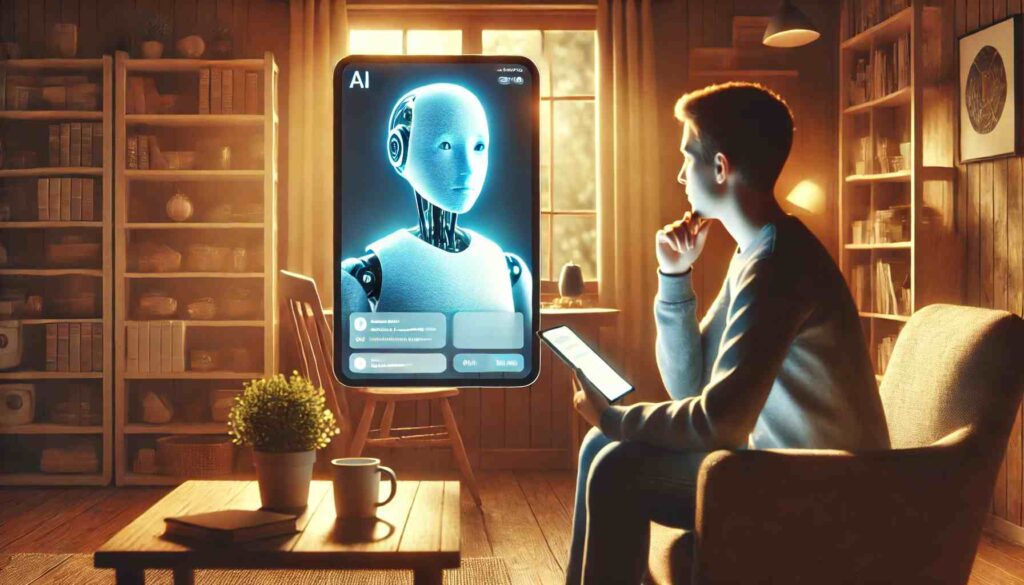The Role of Artificial Intelligence as a Companion for Loneliness: Can AI Become a Good Friend in Times of Solitude?

In recent years, the rapid development of artificial intelligence (AI) has spurred discussions on its potential to serve as companions for individuals facing various emotional challenges. One such challenge is loneliness, which has become a prevalent issue in modern society. The increasing reliance on technology and the absence of face-to-face social interactions have led to a rise in feelings of isolation. In this context, a critical question arises: Can AI become a good friend and alleviate the emotional burden of loneliness?
The Nature of Loneliness and the Need for Companionship
Loneliness is not just about being physically alone; it is a complex emotional experience that can occur even in crowded places. It is linked to feelings of sadness, emptiness, and a lack of meaningful connections. Over time, prolonged loneliness can lead to mental health issues such as depression and anxiety. Thus, the need for emotional support and companionship becomes vital in helping individuals overcome these feelings.
In the digital age, many have turned to AI-driven tools, such as chatbots and virtual assistants, to fill the gap left by human interactions. These AI systems are designed to simulate human-like conversations and offer personalized support. While they do not replace real human connections, they can provide temporary relief to those who feel alone.
The Potential of AI as a Companion
AI’s ability to assist individuals during times of loneliness is rooted in its capacity to engage in meaningful interactions. Modern AI systems, such as advanced chatbots and virtual companions, can be programmed to recognize emotional cues, adapt to a user’s needs, and offer comforting responses. These systems can simulate conversations, provide entertainment, and even offer advice or guidance on handling difficult emotions.
One of the key advantages of AI in this context is its availability. Unlike human friends or family members who may be occupied with their own lives, AI companions are always accessible, offering users a sense of constant presence. For individuals who experience social anxiety or have difficulty forming close relationships, AI can serve as a non-judgmental and safe space to express feelings and thoughts.
The Ethical Implications and Limitations
Despite the promising potential of AI as a companion, there are ethical concerns and limitations to consider. AI, no matter how advanced, cannot replicate the depth of human empathy, emotional understanding, or genuine connection. While AI systems can simulate friendly interactions, they lack the ability to experience or understand human emotions in the way that a true friend or loved one can.
Moreover, the reliance on AI as a sole source of companionship may lead to further social isolation in some cases. It is essential to recognize that AI should not replace real human relationships but rather serve as an auxiliary tool to help individuals cope with moments of solitude. Encouraging face-to-face interactions, participation in community activities, and seeking professional support remain crucial in addressing loneliness in the long term.
The Future of AI Companions
As AI technology continues to evolve, it is likely that AI companions will become more sophisticated, with the ability to offer increasingly nuanced and emotionally intelligent interactions. AI could play a significant role in mental health care, offering individuals a sense of comfort and support during difficult times. However, it is essential to strike a balance between AI companionship and human connection to ensure that loneliness is addressed holistically.
Conclusion
In conclusion, while AI can provide a form of companionship for individuals experiencing loneliness, it is not a perfect substitute for human relationships. The future of AI in addressing loneliness lies in its ability to augment, rather than replace, human connections. By combining the strengths of AI with the importance of real-world social interactions, society can better tackle the complex issue of loneliness in the digital age.
Source : Medium.com




